

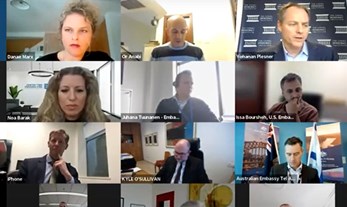
Ambassador Briefing - Israeli Democracy Index 2021
Written By: Yohanan Plesner , Prof. Tamar Hermann
IDI President Yohanan Plesner and Prof. Tamar Herman present the the main findings of the 2021 Israel Democracy Index to dozens of foreign ambassadors stations in Israel.
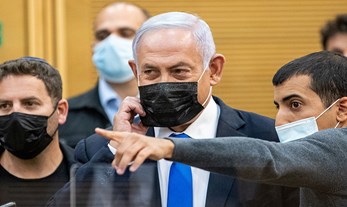
Q&A: Plea Bargain Agreements
Written By: Dr. Amir Fuchs, Dr. Guy Lurie
As former Prime Minister Netanyahu weighs the option of a plea bargain, IDI experts weigh in on the legal standing of such an agreement and its ramifications.
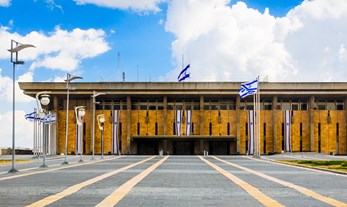
Happy 73rd Birthday, Knesset!
Written By: Prof. Ofer Kenig
As the Knesset, Israel’s legislature, marks its 73rd birthday, IDI is taking the opportunity to reflect on two of its characteristics; the social composition of its membership and its size as compared with other countries.
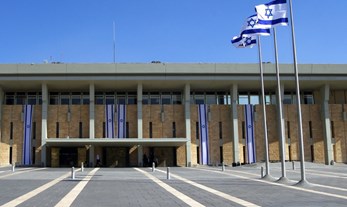
Israel’s Governmental Institutions Must be Strengthened
Written By: Yohanan Plesner
There should be a real commitment to improving Israel's political system and correcting its flaws.

Israeli Democracy as Reflected in International Indexes
Written By: Dr. Or Anabi
Israel is facing many challenges. But in light of the relatively moderate change in most of its index scores, we may draw a modicum of encouragement about the strength and resilience of our democracy.
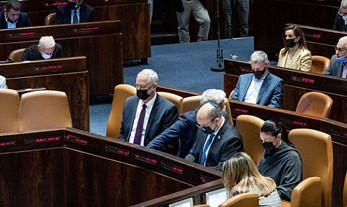
Pandemic Dictates Substantial Changes
Written By: Prof. Tamar Hermann, Dr. Or Anabi
54% of Israeli say that the pandemic has caused them to change their daily routine, and 45% said that they have made significant changes such as switching jobs or halting their studies. As 2021 drew to a close, more than a quarter of those participating in the survey said they are considering or intending to leave their current workplace in the foreseeable future.

Restoring Public Trust in the IDF
Written By: Dr. Idit Shafran Gittleman
The decline in public trust in the IDF is troubling – especially among youngers Israelis who will soon fill the IDF’s ranks. What can be done to reverse this trend?
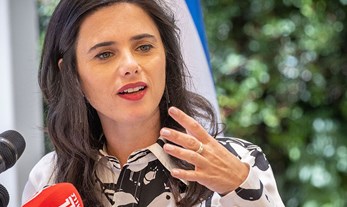
Ministry Adopts IDI's Investor's Regulatory Roadmap
Written By: Daphna Aviram-Nitzan
IDI welcomed the adoption of its recommendations by Interior Minister Ayelet Shaked who announced the implementation of the Investor's Regulatory Roadmap Report, first published at IDI’s 2018 Eli Hurvitz Conference.
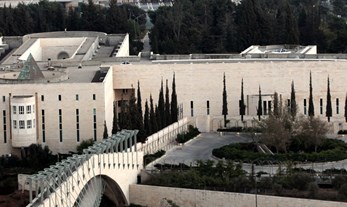
Israel’s Counterterrorism Designation Regime: A Process in Need of Reform
Written By: Adv. Lila Margalit, Prof. Yuval Shany
Granting the executive broad authority to target entities and individuals on the basis of secret evidence is problematic and the process must be reformed
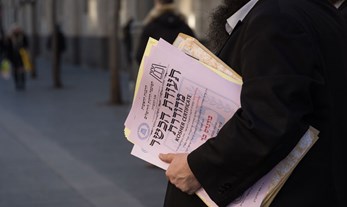
Israel’s Rabbinate Should Welcome These Kashrut and Conversion Reforms
Written By: Prof. Benjamin Porat
They do reduce the Rabbinate's centralized power, but in very different ways, which fundamentally upholds the rabbis' authority, rather than undermining it

Trust is on the Wane
Written By: Dr. Guy Lurie
Despite a decline in trust - the public still believes that in the Court’s role as a professional independent entity and guardian of democratic principles.
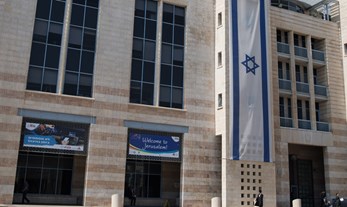
67% of Israelis Want to Transfer More Power from Government to Local Authorities
Israelis express a high degree of trust in their municipalities and there is strong support for transferring more authority away from national government ministries to local authorities.

2021 Israeli Democracy Index: Israel’s Legal System
Written By: Prof. Tamar Hermann, Dr. Or Anabi, Yaron Kaplan, Inna Orly Sapozhnikova
A small majority agree that the Supreme Court should have the power to overturn laws passed by the Knesset when democratic principles are contradicted, while a high rate of the Israeli public, primarily from the right-wing and ultra-Orthodox, believe that the selection of judges in Israel is based on political considerations.
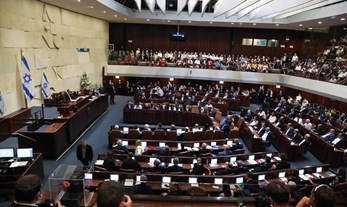
Israeli Democracy Index 2021: Democratic Values
Written By: Prof. Tamar Hermann, Dr. Or Anabi, Yaron Kaplan, Inna Orly Sapozhnikova
The 2021 Democracy Index reveals a complex picture regarding the level of public trust in key institutions and officials, 46% of respondents say that tensions between Jews and Arabs is the fiercest tension in Israeli society
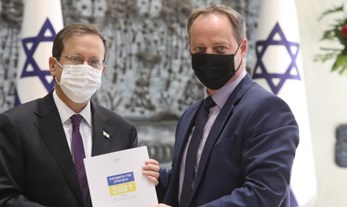
Israeli Democracy Index 2021: Trust
Written By: Prof. Tamar Hermann, Dr. Or Anabi, Yaron Kaplan, Inna Orly Sapozhnikova
IDI's 2021 Israeli Democracy Index shows a decline in trust in most state institutions

Political Reform: The Imperative of the Hour
Written By: Dr. Assaf Shapira
Critical reforms are necessary to ensure the quality and future of Israeli democracy
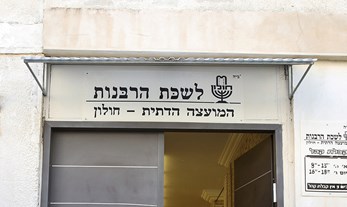
Most Israelis Want Term Limits for Local Rabbis
Written By: Dr. Ariel Finkelstein
Most of the public support limiting local authority rabbis' term of service to five years and giving them the option to be re-appointed at the end of each term

Two Thirds of Ultra-Orthodox Are Online
Written By: Dr. Gilad Malach, Dr. Lee Cahaner
Despite public criticism, two thirds of ultra-Orthodox Israelis are now online
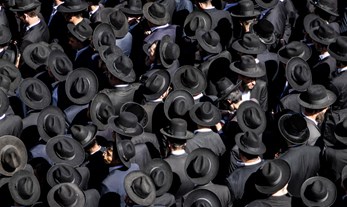
An Increase Among Ultra-Orthodox Men Enrollment in Higher Education and Yeshivas
Written By: Dr. Gilad Malach, Dr. Lee Cahaner
Ultra-Orthodox Jews now make up 13% of Israelis, and are continuing to grow rapidly. In 2020, the pandemic led to an increase in the number of applicants for professional and academic training, especially among ultra-Orthodox men

Israel’s Lost Youth: Manifest and Latent School Dropout
Written By: Dr. Asaf Malchi
The COVID-19 pandemic has significantly increased school dropout rates due to its exacerbation of the already emotional, social, and academic crises affecting multiple age and population groups.

Taxing Sugary Beverages
Written By: Prof. Yuval Feldman, Rotem Shpigler
How will Israelis react to a new tax on sugary drinks? A special IDI survey found that only a quarter of the public said that they would reduce their consumption of such drinks if they are taxed up to half a shekel, but a significant majority said they would limit their consumption if the tax exceeds two shekels.
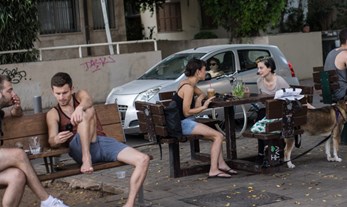
Is Israel Also Experiencing a “Great Resignation”?
Written By: Daphna Aviram-Nitzan, Roe Kenneth Portal
The "great resignation" that has swept the US and UK in recent months is one of the symbols of the recovery from the pandemic. Is this trend taking place in Israel too?

The Collapsed Bridge Loan: Israel’s Shin Bet Location Tracking of Omicron Carriers
Written By: Adv. Amir Cahane
Israel reinstated contact-tracing activities by the Israel Security Agency to track carriers of the omicron variant of the coronavirus. Five days later, it halted the ISA’s contact-tracing activities, due to a lack of parliamentary support.

Does Iran pose an existential threat? Israeli Voice Index November 2021
Written By: Prof. Tamar Hermann, Dr. Or Anabi
62% of Israeli Jews think that Iran poses an existential threat and 58% would support an attack on Iran’s nuclear facilities also without American consent
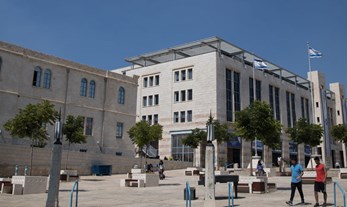
Can Israel’s Politicians Regain Israelis’ Trust?
Written By: Dr. Ariel Finkelstein
Reducing centralization and handing over political power to local authorities, might just might do the trick
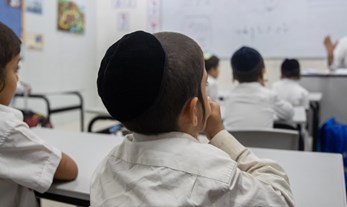
Dramatic Rise in the Number of Sexual Abuse Cases Treated by Social Service Departments in Ultra-Orthodox Local Authorities
Written By: Dr. Ariel Finkelstein
Growing willingness to report sexual abuse in ultra-Orthodox society: The last two decades have seen a dramatic rise in the number of cases of sexual abuse or violence against children treated by social service agencies in ultra-Orthodox local authorities, where today- the rate of abuse is higher than in other local authorities

The Lack of the Right to Equality in Israel is Unique in the Democratic World
Written By: Prof. Yuval Shany, Dr. Amir Fuchs
Israel Democracy Institute researchers welcome the move to anchor the right to equality in a Basic Law, and note the urgent need for this step, particularly in light of the Nation-State Law. At the same time, the researchers also recommend a series of amendments to the bill.

Realizing a Plan: Only by Working Together
Written By: Dr. Nasreen Haddad Haj-Yahya
A new government plan aimed at increase the integration of Arab Israelis tries something new – bringing together political leaders, civil servants, and representatives of civil society to collaborate in its formulation and implementation.

Annual Conference on National Security and Democracy - Day 2
The second day of the conference focused on public trust in the military and the challenges peripheral communities face in the IDF. Among those presenting were Minister Matan Kahane, Minister Penina Tamano-Shata, former Justice Hanan Meltzer and Major General Eliezer Toledano, the IDF's Commander of the Southern Command.

Changing Public Perceptions of the IDF: Special Survey
While Israelis award the IDF good grades for its operational capabilities and ethical conduct in combat, less than a third of the public think the IDF is managing its budget well and in a fiscally-responsible manner. 47% of Jewish Israelis now think that the IDF should abandon its 'people's army' model and transition to a professional standing military.

